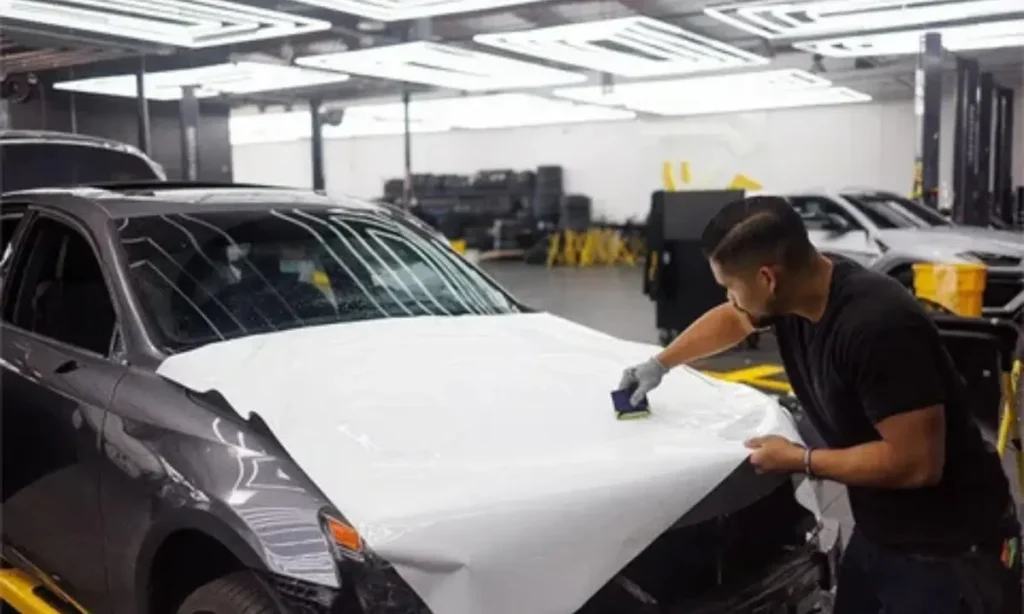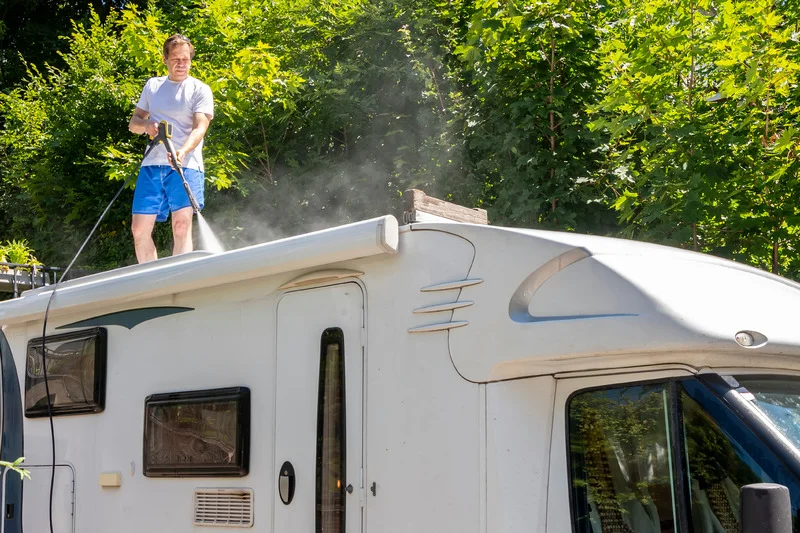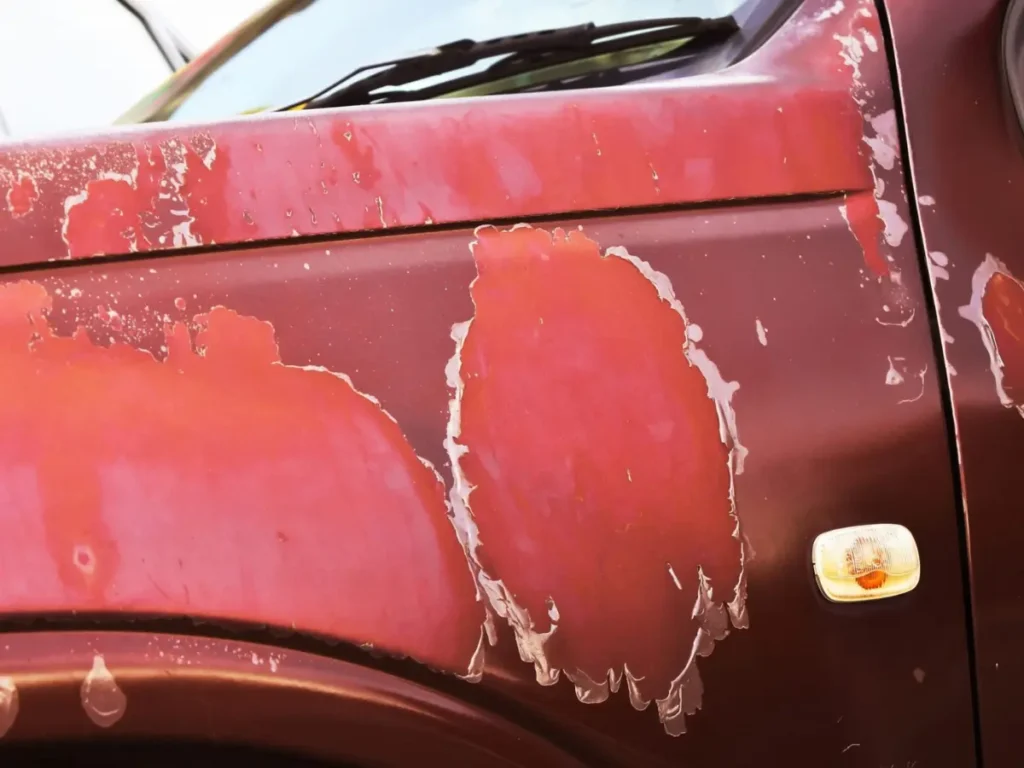The transparent roof or panorama sunroof is one of the most favored new features of modernity. These broad glass hoods allow natural light to flood into the cabin and provide drivers and passengers with a light and open effect with each ride. They also contribute to the luxury and the general appeal to the car.
But on the one hand, they look gorgeous; on the other, however, they require special treatment. In comparison to the ordinary metal roofs, the transparent roofs and panorama sunroofs will need a meticulous piece of work to maintain their cleanliness, functionality, and safety. Their appearance and performance can be affected by dust, water spots, UV rays, and even the smallest scratches. There is a way to keep that clear, flawless view above your head.
Understanding Transparent Roofs and Panoramic Sunroofs
As opposed to a painted metal roof, transparent roofs are constructed of glass or strong plastics such as acrylic or polycarbonate. They tend to be wider in the entire roof of the vehicle and thus more vulnerable to the sun, dirty weather and rain. A few panoramic roofs are even fitted with moving elements, such as sliding glass or tilting sections, requiring additional attention to detailing.
Types of Transparent Roofs (Glass, Acrylic, Polycarbonate)
- Tempered Glass Roofs – Most of the modern cars have these; they are strong and cannot break easily, though they can get spots and scratches of water.
- Acrylic Roofs – Light and cheaper, however more likely to scratch.
- Polycarbonate Roofs – Polycarbonate is more robust than acrylic and is lighter than glass, yet is susceptible to abrasive cleaners as well.
Common Features and Challenges
These roofs often include:
- UV protection layers to reduce sun damage.
- Tinting or coatings for better comfort.
- Rubber seals and tracks to prevent leaks.
The challenges? Hard to remove water spots, darkened by UV rays, seal repairs, and ensuring moving components are well-maintained and oiled.
Preparing to Detail Transparent Roofs
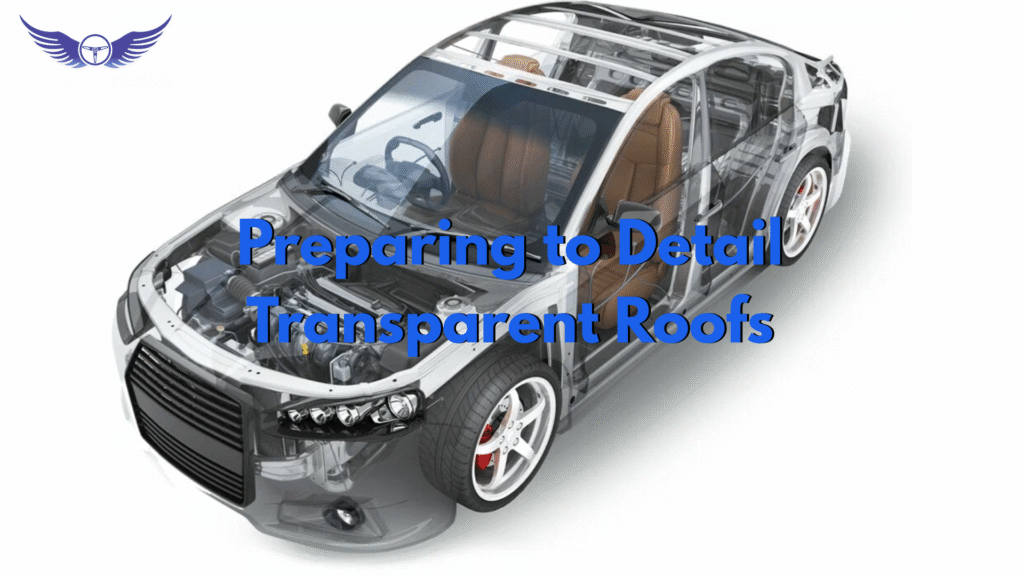
Inspecting for Damage, Scratches, or Seals Issues
Inspect Before cleaning:
- Identify cracks, chips, or scratches that may get worse as the car details are being done.
- Rubber marks to see whether the signage is worn out or dry.
- Check the movement of the sunroof and make sure that there is no sticking or grinding.
Choosing the Right Environment and Tools
Detailed in a dust-free/shaded area. Direct sunlight may dry cleaning solutions too quickly leaving streaks. Use:
- Soft microfiber cloths
- Non-abrasive sponges
- A brush with soft bristles and seals and edges.
Selecting Safe Cleaning Products
- Apply glass roofs with ph balanced glass cleaners.
- In the case of acrylic or polycarbonate, use plastic-safe cleaners, or it will cloud.
- Use no ammonia-based products, which will destroy tints and coatings.
Cleaning Techniques for Transparent Roofs and Sunroofs
Washing Without Causing Scratches
It is always advisable to begin by sprinkling the roof with clean water, to loosen dust and debris. Wash the car surface with a two bucket technique (one bucket with soapy water, and one bucket with rinsing water). Wipe with straight motion rather than circular to prevent swirl marks.
Cleaning Interior and Exterior Surfaces
- Exterior: Minimize the use of bird droppings, tree sap and water spots by using a safe cleaner.
- Interior: Wipe with a glass cleaner using a microfiber cloth so that it does not streak. Be mindful of the dust collection edges.
Handling Stubborn Dirt, Water Spots, and Debris
- Water Spots: Apply a special water spot remover that will not damage glass or plastics.
- Tree Sap: A small amount of isopropyl alcohol, diluted in water, should be used but make the test on a small area first.
- Debris in Tracks: Clean up dirt used on mechanisms with compressed air or a soft brush without damaging mechanisms.
Polishing and Protecting Transparent Roofs
When and How to Polish Glass vs. Plastic Roofs
- Glass Roofs: Can be buffed with glass-polishes to even out car scratches (finer scratches are difficult to remove) and haze.
- Plastic Roofs: Could use plastic polishes, which are made specifically to be used in acrylic or polycarbonate as well because other compounds can damage the surface.
Applying UV Protectants and Sealants
- Seal using a ceramic or hydrophobic coating to keep water out and be able to clean it more easily.
- In the case of plastics use UV protectants to avoid yellowing and fading.
Avoiding Common Mistakes That Cause Damage
- Do not apply rough towels on transparent roofs or paper towels.
- Do not use high pressure washers over seals.
- Be careful not to over polish particularly on acrylic or polycarbonate.
Maintaining Seals and Mechanisms
Checking and Cleaning Rubber Seals
Wipe using a dry microfiber cloth. Coat them with a rubber conditioner, so that they will remain pliable and not crack and leak or make wind noises.
Lubricating Moving Parts of Panoramic Sunroofs
In case your sunroof slides, drip some lubricant based on silicone material on the tracks and moving parts. Use petroleum free products that do not damage rubber.
Preventing Leaks and Wind Noise
- Keep seals free of dirt.
- Ensure tracks are lubricated but not overloaded with grease.
- Test your sunroof after cleaning to make sure it closes smoothly.
Special Considerations for Different Roof Materials
Care for Tempered Glass Roofs
These are hard yet tend to get water spots. Apply a good glass cleaner and apply a hydrophobic coating on top of it.
Cleaning Acrylic and Polycarbonate Roofs
Only plastic cleaners should be used. Do not use abrasives and other harsh chemicals. Light polishing at all times to avoid damaging the surface.
Handling Tinted and Coated Roof Surfaces
Coloured or painted roofs are to be cleaned with ammonia-free cleaners. Products containing abrasive elements may be able to destroy the layer of the tint and cause peeling or fading.
Seasonal Care and Long-Term Maintenance
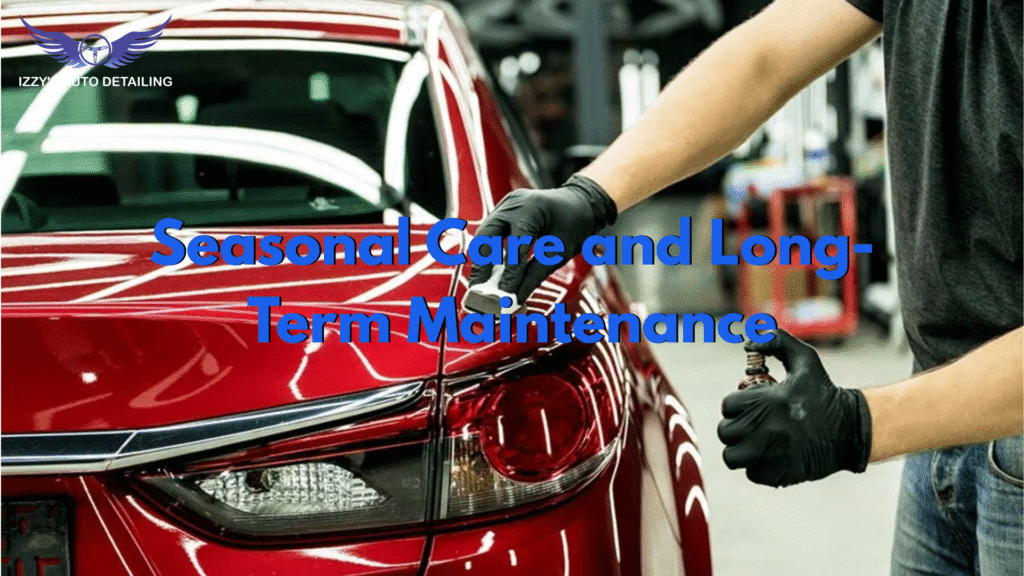
Protecting Roofs in Harsh Weather Conditions
- Use UV protectants frequently in the summer.
- During winter, be careful when clearing snow with soft brush (do not use metal scrapers).
- Check the seals on the checks to avoid leakages especially in rainy seasons.
Regular Inspection Schedules
- Monthly: Wash interiors and outside.
- Every 3–4 months: Use a protective sealant.
- Yearly: Professional car examine seals and moving parts.
When to Seek Professional Help
- Scratches or cracks in the roof, deep.
- Perennial seals.
- Mechanisms that are stuck or do not open on the sunroof.
FAQs
Yes, if it’s real glass. However, with acrylic or polycarbonate, a plastic safe cleaner is used.
No less than once in the course of a month, more regularly when in contact with heavy dirt or rain.
Yes, they are water repellent, spot less, and easier to clean.
Look in your car manual, or rapping–glass seems colder and heavier.
Even the light scratches can be polished. Deep ones can be professionally repaired.
Yes, sometimes but in case of sealed seals, they might be required to be replaced in case they wear off.
Caution; should never be sprayed on edges or seals.
Conclusion
Having a clear and clean transparent roof enhances visibility and comfort and also the overall look of your car. It is also good for maintaining the value of your car. It could be a clear night sky or a heavy sun, either way, with proper care you can be able to enjoy your roof as intended. Clear roofs are an investment in the style and the functionality. Through regular cleaning, polishing and seal maintenance they will be able to look new and run well many more years to come. In order to maintain your panoramic roof in the best condition and have the benefit of a brighter and cleaner driving experience, do not hesitate to rely on the professionals.
To explore more, visit Izzy’s Auto Detailing and discover professional solutions for every part of your vehicle.


